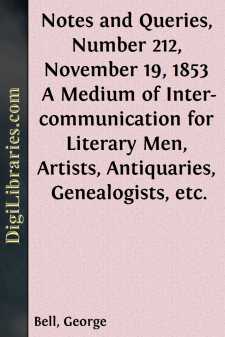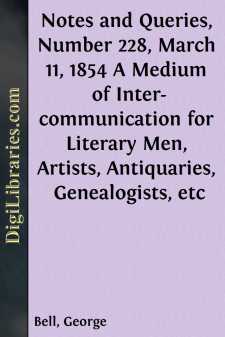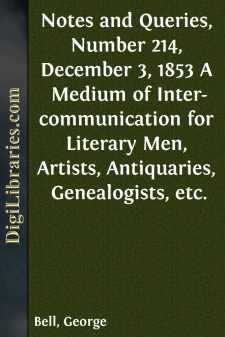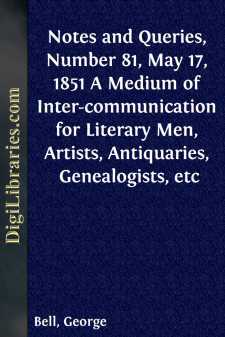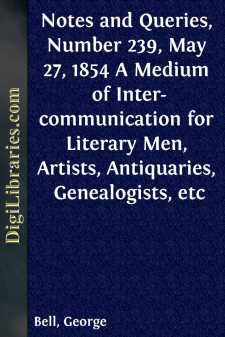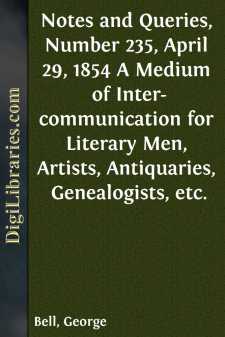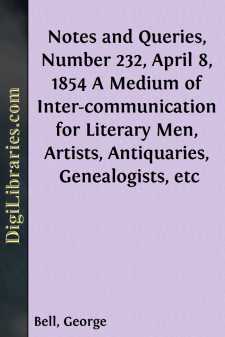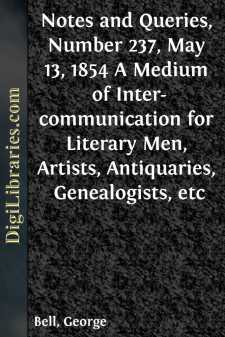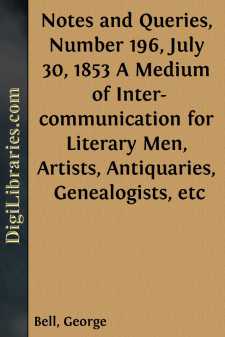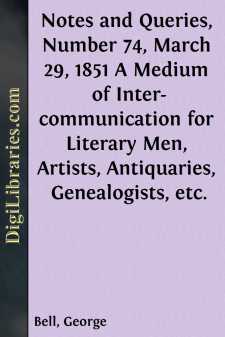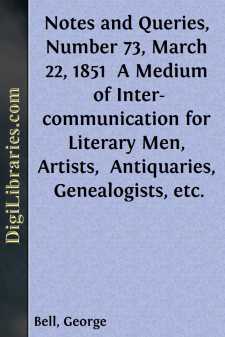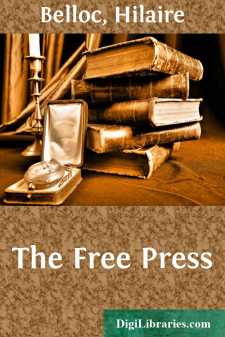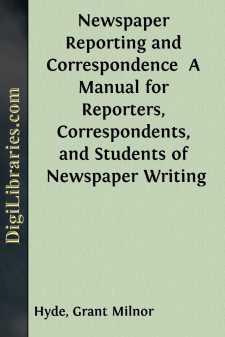Categories
- Antiques & Collectibles 13
- Architecture 36
- Art 48
- Bibles 22
- Biography & Autobiography 813
- Body, Mind & Spirit 142
- Business & Economics 28
- Children's Books 15
- Children's Fiction 12
- Computers 4
- Cooking 94
- Crafts & Hobbies 4
- Drama 346
- Education 46
- Family & Relationships 57
- Fiction 11829
- Games 19
- Gardening 17
- Health & Fitness 34
- History 1377
- House & Home 1
- Humor 147
- Juvenile Fiction 1873
- Juvenile Nonfiction 202
- Language Arts & Disciplines 88
- Law 16
- Literary Collections 686
- Literary Criticism 179
- Mathematics 13
- Medical 41
- Music 40
- Nature 179
- Non-Classifiable 1768
- Performing Arts 7
- Periodicals 1453
- Philosophy 64
- Photography 2
- Poetry 896
- Political Science 203
- Psychology 42
- Reference 154
- Religion 513
- Science 126
- Self-Help 84
- Social Science 81
- Sports & Recreation 34
- Study Aids 3
- Technology & Engineering 59
- Transportation 23
- Travel 463
- True Crime 29
Notes and Queries, Number 212, November 19, 1853 A Medium of Inter-communication for Literary Men, Artists, Antiquaries, Genealogists, etc.
by: George Bell
Categories:
Description:
Excerpt
PARTY-SIMILES OF THE SEVENTEENTH CENTURY—NO. I. "FOXES AND FIREBRANDS." NO. II. "THE TROJAN HORSE."
With Englishmen, at least, the seventeenth was a century pre-eminent for quaint conceits and fantastic similes: the literature of that period, whether devotional, poetical, or polemical
, was alike infected with the universal mania for strained metaphors, and men vied with each other in giving extraordinary titles to books, and making thecontents justify the title. Extravagance and the far-fetched were the gauge of wit: Donne, Herbert, and many a man of genius foundered on this rock, as well as Cowley, who acted up to his own definition:"In a true Piece of Wit all things must be,
Yet all things there agree;
As in the Ark, join'd without force or strife,
All creatures dwelt—all creatures that had life."
It is not, however, for the purpose of illustrating this mania that I am about to dwell on the two similes which form the subject of my present Note: I selected them as favourite party-similes which formed a standing dish for old Anglican writers; and also because they throw light on the history of religious party in England, and thus form a suitable supplement to my article on "High Church and Low Church" (Vol. viii., p. 117.).
As the object of the Church of England, in separating from Rome, was the reformation, not the destruction of her former faith, by the very act of reformation she found herself opposed to two bodies; namely, that from which she separated, and the ultra-reformers or Puritans, who clamoured for a radical reformation.
Taking these as the Scylla and Charybdis—the two extremes to be avoided—the Anglican Church hoped to attain the safe and golden mean by steering between these opposites, and find, in this via media course, the path of truth.
Accordingly, her divines abound with warnings against the aforesaid Scylla and Charybdis, and with exhortations to cleave to the middle line of safety. Acting on the proverb that extremes meet, they were ever drawing parallels between their two opponents. On the other hand, the Puritans stoutly contended that they were the true middle-men; and in their turn traced divers similarities and parallels betwixt "Popery and Prelacy," the "Mass Book and Service Book."
Without farther preface, I shall give the title of a curious work, which will tell its own story:
"Foxes and Firebrands; or A Specimen of the Danger and Harmony of Popery and Separation. Wherein is proved from undeniable Matter of Fact and Reason, that Separation from the Church of England is, in the Judgment of Papists, and by Experience, found the most Compendious way to introduce Popery, and to ruine the Protestant Religion:
'Tantum Religio potuit suadere Malorum.'"
A work under this title was published, if I mistake not, in London in 1678 by Dr. Henry Nalson; in 1682, Robert Ware reprinted it with a second part of his own; and in 1689 he added a third and last part in 12mo., uniform with the previous volume. In the Epist. Ded. to Part II. the writer says of the Church of England:
"The Papists on the one hand, and the Puritans on the other, did endeavour to sully and bespatter the glory of her Reformation: the one taxing it with innovation, and the other with superstition."
The Preface to the Third Part declares that the object of the whole work is "to reclaim the most haggard Papists" and Puritans....


